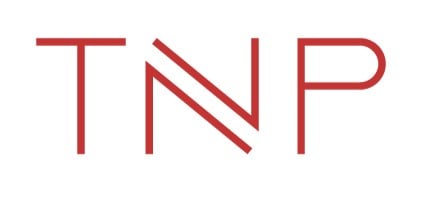

General counsel, company secretary | Chemical and Allied Products



Aramide Nwokediuko
General counsel, company secretary | Chemical and Allied Products
What are the most significant cases or transactions that your legal team has recently been involved in?
My legal team was involved in the merger of two of the biggest paint manufacturers in Nigeria – Chemical and Allied Products and Portland Paints – resulting in the surviving entity being Chemical and Allied Products. This merger resulted in the creation of the market leader in the paint industry. The transaction spanned two years, commencing due diligence on both companies, transaction structuring which involved extensive shareholder engagement, holding successful court-ordered meetings for both companies and applying for approvals from and extensive engagement with the regulator – the Securities and Exchange Commission and the Federal Competition and Consumer Protection Commission to obtain approvals.
As a general counsel, how do you anticipate and prepare for potential legal and regulatory challenges that may arise, particularly in light of emerging technologies and evolving business landscape?
In the dynamic landscape of recent years, I have discovered that a critical principle to thriving in fast-paced environments is mastering the art of evolution. The crux of this preparation and mastery lies in cultivating a habit of continuous learning. Every forward-thinking and strategic leader in this era should be keenly focused on skill sets and competencies in digital transformation and leadership. I have meticulously honed my abilities and knowledge by engaging in courses, attending conferences and networking, attentively learning from industry experts and keeping abreast through professional associations. My approach to disruption is grounded in a proactive commitment to continuous learning and adaptation.
The 21st century business is shifting profoundly, with digitalisation emerging as a driving force. The case is not similar in the legal industry, as disruption has been ongoing. Recently, regulators in my country (Nigeria) have released new laws, regulations and policies in various areas to address the impact of digitalisation, ranging from copyright, data protection, blockchain, and startup laws, among others. It is important to understand recent trends and how they may affect regulations now and in the future. In some cases, regulators employ a wait-and-see approach to innovation and disruption before transiting sharply to create laws and policies. Instances like this could put organisations off guard, trying to meet up with new regulations. Hence, the only solution is to stay ahead in knowledge and better understand how to navigate the opportunities and challenges presented by digital transformation. This includes understanding the legal and policy implications of prevalent technology topics such as data privacy, cyber security, financial technology and emerging technologies like blockchain and artificial intelligence.
One of the ways I prepare my organisation to anticipate legal and regulatory change is by having strategic discussions and engagement with members of the compliance and digital teams to ensure that legal considerations are taken into account in implementing digital initiatives. Although the traditional role of a general counsel has always been to provide legal advice and guidance, my work continually evolves to identify potential ideologies and innovations that can affect corporate culture and compliance.
To carry other team members along in understanding compliance ideologies and technological innovations, I periodically organise learning and training sessions where experts and skilled personnel in digital transformation/leadership are invited to speak. By doing this, my organisation will not be unaware of new regulations and policies. Still, it has been prepared to benefit from such innovation swiftly and to address the risks that may be associated.
By experience, I have also understood that regulators are eager to engage stakeholders, lawyers and technical experts to help shape the future of regulation in emerging and disrupting industries. I have been privileged to speak at conferences and sessions alongside critical members of regulatory bodies and other members of professional associations. I have understood that constructive dialogue with regulators is instrumental in addressing organisations’ challenges in adapting to new laws.
At the core of my philosophy as a general counsel is the understanding that disruption is not a threat to be feared but an opportunity to be seized. Embracing this mindset of change and adaptability has empowered me to keep pace with change and lead and shape it.
How do you see the general counsel role evolving in Nigeria over the next five-ten years?
The role of the general counsel will take a broader approach than is currently attainable. Traditionally, the role of a general counsel in Nigeria centres on providing legal advice and guidance, meeting up with corporate compliance goals. In the next five to ten years, general counsel will have to take on additional roles that are core to the business to remain relevant.
The role will likely require a strong fusion of legal knowledge and business expertise. In the foreseeable years, organisations are likely to place increased emphasis on hiring specialised general counsel with a firm understanding of their business’s practical, commercial and operational needs. Typically, in Nigeria, general counsel are mainly employed as qualified hires from law firms and may not necessarily possess expertise in the specific business domains they advise on. That will change in the coming years. Legal and policy changes in recent years have been fast paced in almost every industry, and the unique demands of each sector will necessitate legal guidance that is deeply attuned to the specific regulatory, operational and competitive factors shaping the business. The general counsel of the future will likely begin to develop skills pertaining to the areas of their business rather than relying solely on legal knowledge in advising on practical issues.
Also, the rise of technology across all industries will significantly impact the role of general counsel. At the centre of their operations, the future general counsel must embrace a digital mindset and be willing to adapt to technological change and innovation. To enable their organisations to have a competitive edge, they are expected to lead agile and tech-savvy teams that can rapidly adjust to the changing business landscape. The future general counsel will likely take up the role of digital transformation leaders to achieve compliance objectives, which will involve an adept understanding of complex technologies and associated risks. The general counsel of the future is a technology-inclined lawyer, regardless of the industry they are currently engaged in. Employing legal technology in administrative processes will be a competitive edge for forward-thinking organisations, as most Nigerian in-house operations are still handled manually. This foresight will be needed to seize business opportunities, gain a competitive edge, and reduce business risks. For instance, artificial technology such as ChatGPT has found valuable applications in automating routine tasks and research but has also presented a whole new spectrum of ethical and intellectual property concerns. The general counsel is not just a legal advisor but a risk manager and should be able to balance the benefits and risks of innovation to their organisation’s compliance objectives. I envisage that the general counsel will be keen on developing ethical standards and conduct handbooks and manuals specifically tailored to address innovative technologies, and this will mark a significant evolution in their role as holistic business advisors.
How does the in-house legal function contribute to the overall dispute resolution strategy of the organisation?
In-house legal functions are critical in effectively managing any organisation’s dispute resolution strategies. A nuanced understanding of this role empowers in-house teams to navigate challenging issues such as legal liabilities, high legal costs and effective legal representation where business interests are concerned. To achieve this, the in-house legal team must have a firm understanding of their organisation’s objectives and priorities to choose the dispute resolution mechanism that is best suited for the company.
Most business relationships are purely transactional, and thorough contemplation is not given to all plausible scenarios that may occur if the business relationship fails. The job of an in-house lawyer is to provide a reality check on these issues, diplomatically advising on how to navigate a broken business relationship. This is where an effective dispute resolution mechanism comes up, as the in-house counsel may draft contracts to reflect a strict exit strategy, settlement or compensation arrangement to restore the business relationship. The decision of which dispute mechanism to employ, whether arbitration, litigation, mediation, or arbitration, is crucial to the in-house lawyer’s role in safeguarding the organisation’s interest. For instance, arbitration may be best suited for large value transactions and technical subject areas, while litigation might be suitable for cases with clear legal precedents or public implications. Additionally, less complex settlement procedures like mediation and negotiation can be seamlessly employed to mend broken business relationships or secure enough compensation or judgment to protect the organisation’s interests. Regardless of the chosen method, in-house teams are responsible for examining the possible outcome of a disputed matter, considering the likelihood of its success or failure, and evaluating cost implications before advising an organisation on whether to pursue a claim.
In-house teams also play critical roles in engaging external litigators, arbitrators and legal specialists to handle disputes when needed. Most organisations give in-house teams the leverage to source these external consultants, as they believe they have sufficient understanding of the industry to employ knowledgeable external legal practitioners or firms. The transactional background of most in-house lawyers also makes them very proactive and suitable to represent an organisation’s interest in alternative dispute resolution mechanisms such as arbitration, negotiation, and mediation, among others.
The in-house legal team is also responsible for ensuring compliance and adherence to agreements within their organisations and communicating to teams how compliance could make all the difference in avoiding legal risks. The in-house legal team is thoroughly involved in every department of the organisation. For instance, the in-house legal team will engage the IT department and other relevant stakeholders in keeping up with data privacy laws and policies; they will work closely with the human resources department to define ethical standards for employees; they will also work closely with the manufacturing or sales team to ensure compliance with all deliverables and agreement outlined in an existing contract. Holistically, the in-house legal team is integral to preventing the organisation from encountering legal pitfalls, mitigating and managing risks, and consistently protecting the interests of their organisations.
Company secretary, general counsel | Chemical and Allied Products
Aramide Nwokediuko is a seasoned legal professional with over two decades of experience in corporate governance, mergers & acquisitions, and compliance and a proven track record of driving strategic initiatives...